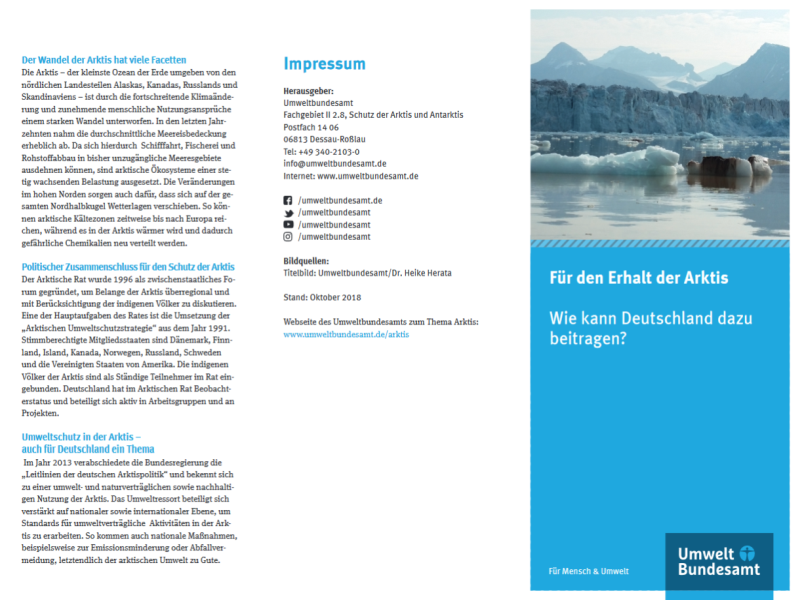Environmental Guidelines for a German Arctic Policy
- Project
- Duration
-
-
In the Arctic, increasing economic activities such as shipping and tourism as well as exploration and extraction of mineral resources are meeting unique, protected nature and harsh environmental conditions. In addition, the effects of climate change are much more perceptible in the Arctic than in other regions of the world. Air and water temperatures have risen faster than the global average in recent decades. The changes in the region also have an impact on the rest of the world. For example, melting continental ice masses contributes to rising sea levels and releasing methane from thawing permafrost soils contributes to global warming.
Germany - also as a state not located in the Arctic - has direct and indirect influences on the region and possibilities to contribute to the protection of the Arctic environment. As part of a project for the Federal Environment Agency, the Ecologic Institute, together with its partners, the Institute for Advanced Sustainability Studies (IASS) and Professor Ralf Brauner, is developing strategic environmental guidelines for German Arctic policy.
The Federal Government's "Guidelines for German Arctic Policy" from 2013 are to be specified in the project for environmental concerns. Important starting points for the protection of the Arctic environment are to counteract the effects of climate change and to support necessary measures for climate protection, to minimize air pollutants, to preserve biological diversity, e. g. by the designation and expansion of marine protected areas, as well as to reduce the input of waste in the sea and the pollution caused by underwater noise.
In addition, three thematic papers elaborate in more detail on the focal points "Pollution of the Arctic by ships", a "Gap analysis of the Polar Code" and the "Impact of tourism activities in the Arctic". In order to raise public awareness of German environmental protection for the benefit of the Arctic, the project will also include a conference with public participation and an explanatory film.






